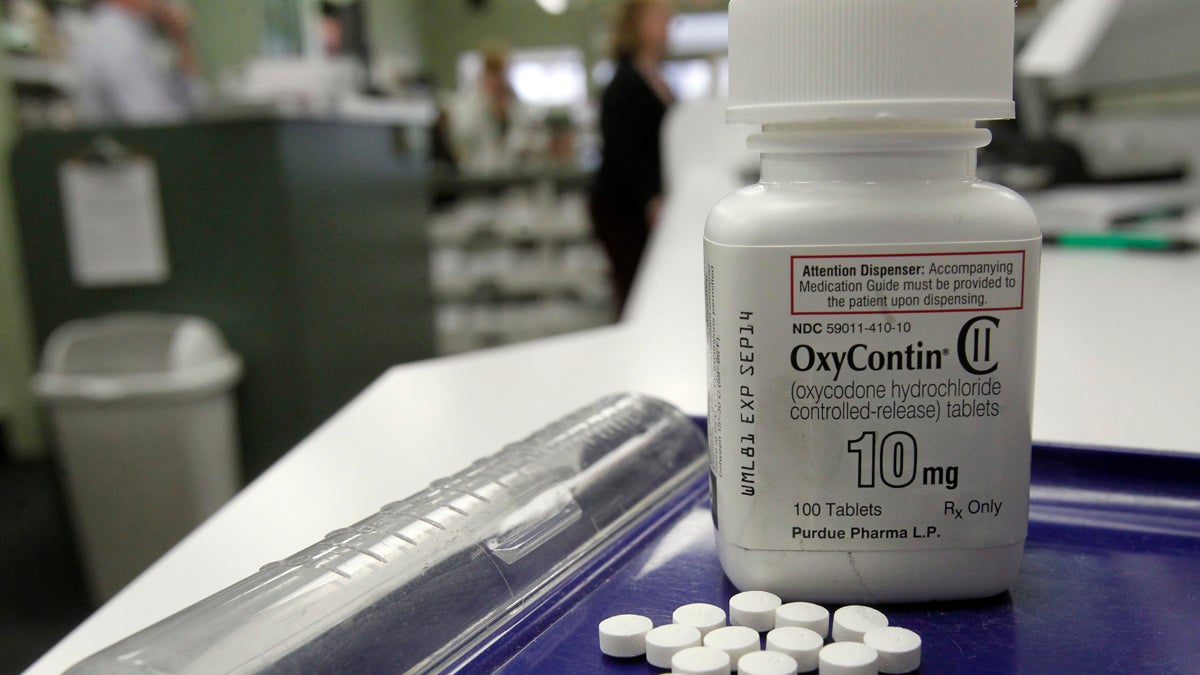Pa. hotline links those in need with help to confront opioid addiction
Pennsylvania far exceeds the national average of drug-related overdose deaths. Last year, 4,642 such deaths were reported — and the number is expected to rise this year.

OxyContin pills are arranged for a photo at a pharmacy. (Toby Talbot/AP Photo, File)
One of the most frequent complaints that Jennifer Smith, acting secretary of Pennsylvania’s Department of Drug and Alcohol Programs, hears from family and friends concerned about loved ones’ opioid abuse is that they don’t know how to access treatment.
“I heard over and over and over again … ‘my child needs treatment, but I have no idea how to get him or her there. I don’t know who to call,’ ” said Smith last month at a hearing on the state of the opioid epidemic in Pennsylvania.
To address that complaint, the department set up a toll-free hotline staffed all day, every day to connect people seeking treatment with nearby service providers.
Since last November, the PA Get Help Now 24/7 hotline has fielded more than 18,000 calls.
About half of those calls lead someone to treatment, said Smith, while the other calls may be from someone asking about resources — such as a parent looking for a support group.
The program, which cost the state more than $1 million, is one of Gov. Tom Wolf’s major initiatives to combat the state’s opioid crisis.
Pennsylvania far exceeds the national average of drug-related overdose deaths, according to the U.S. Drug Enforcement Administration. Last year, 4,642 such deaths were reported, a 37 percent increase from 2015. And the fatality rate is expected to significantly rise again this year.
The difference between other call centers for behavioral health issues and this hotline is that it’s tailored to Pennsylvania residents, said Smith.
Staffers are familiar with the way insurance works in the state — as well as local and county service providers that are available to residents.
And about a third of those staffing the hotline are certified recovery specialists who have had personal experiences with addiction.
“We have someone who can get on the line with you and say, ‘You know what, I’ve been where you are, and life can be so much better. Here’s my story. Here’s how I’ve done this, and I’m going to stay with you to help you through this process,’ ” said Smith.
Shea Madden, executive director at West Branch Drug & Alcohol Abuse Commission, monitors the treatment and prevention programs throughout Lycoming and Clinton counties.
She also often hears that people don’t know how to access resources to help deal with opioid addiction.
“No one wants to know who we are until they need us,” said Madden.
Madden suggests people learn about available resources before an emergency situation occurs.
Next year, Smith said, the department plans to launch a companion website with better access to available resources for people less comfortable making a phone call.
The PA Get Help Now helpline is 1-800-662-HELP (4357).
WHYY is your source for fact-based, in-depth journalism and information. As a nonprofit organization, we rely on financial support from readers like you. Please give today.






